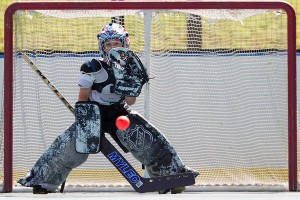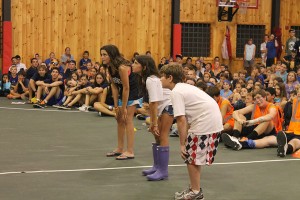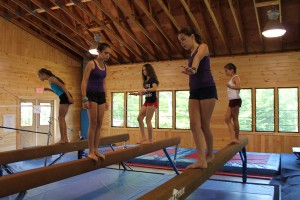 Whether it’s a school spelling bee or a soccer game, as parents we want to see our children win not just to experience the joy of seeing them excel but because we know that they want to win. Being raised in a competitive culture naturally makes us all want to be number one. Children equate being number one with being the best. However, as grownups we know that it’s impossible to win all of the time and that winning doesn’t necessarily mean being the best so much as being the best on that particular day. The idea that losing, in reality, is closer to not winning in that it’s possible to “lose” yet gain something valuable from a contest or competition is one of the most difficult concepts for children to embrace. Camp is a place where not only is this point driven home daily, but it’s a lesson learned at camp in a fun, constructive environment.
Whether it’s a school spelling bee or a soccer game, as parents we want to see our children win not just to experience the joy of seeing them excel but because we know that they want to win. Being raised in a competitive culture naturally makes us all want to be number one. Children equate being number one with being the best. However, as grownups we know that it’s impossible to win all of the time and that winning doesn’t necessarily mean being the best so much as being the best on that particular day. The idea that losing, in reality, is closer to not winning in that it’s possible to “lose” yet gain something valuable from a contest or competition is one of the most difficult concepts for children to embrace. Camp is a place where not only is this point driven home daily, but it’s a lesson learned at camp in a fun, constructive environment.
 The pressure of anxious parents and coaches on the sidelines of sports competitions combined with the knowledge that school performance affects everything from what kind of classes they can take, extracurricular activities in which they can participate, and what colleges they will be attend place a great deal of emphasis on children’s performance. The ability for children to be able to process that good can come from not winning is clouded because the end goal is the emphasis. The underlying message that children sometimes inadvertently receive as a result is that they will be valued or loved less if they lose. Camp, on the other hand, emphasizes process and embraces novice. One of the primary messages conveyed to campers is that winning is a great thing at camp, but it’s not everything. Improving skills, finding activities one really loves, having fun and making friends are valuable attributes at camp. In such an environment, winning
The pressure of anxious parents and coaches on the sidelines of sports competitions combined with the knowledge that school performance affects everything from what kind of classes they can take, extracurricular activities in which they can participate, and what colleges they will be attend place a great deal of emphasis on children’s performance. The ability for children to be able to process that good can come from not winning is clouded because the end goal is the emphasis. The underlying message that children sometimes inadvertently receive as a result is that they will be valued or loved less if they lose. Camp, on the other hand, emphasizes process and embraces novice. One of the primary messages conveyed to campers is that winning is a great thing at camp, but it’s not everything. Improving skills, finding activities one really loves, having fun and making friends are valuable attributes at camp. In such an environment, winning
takes on less prominence. Children are less likely to feel less valuable as campers for losing.
Camp leaders and staff work very hard throughout the summer to make sure this atmosphere is maintained. Children are encouraged for  performance, accomplishment, and attitude regardless of being winners or losers in a contest. Many special camp games or competitions are also structured in a way that encourages children to work together in order to win and provide excellent opportunities for those children who may not be excellent athletes or extreme intellectuals to have their moments to shine.
performance, accomplishment, and attitude regardless of being winners or losers in a contest. Many special camp games or competitions are also structured in a way that encourages children to work together in order to win and provide excellent opportunities for those children who may not be excellent athletes or extreme intellectuals to have their moments to shine.
Learning how to “not win” at camp makes it much easier for children to put “not winning” at home into proper perspective!

